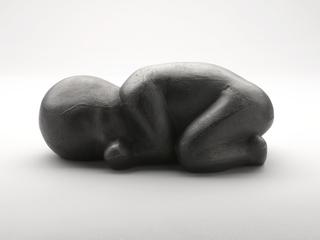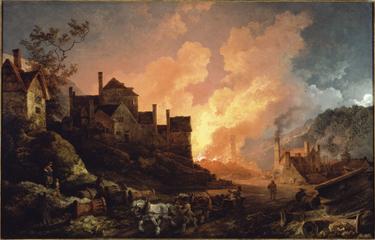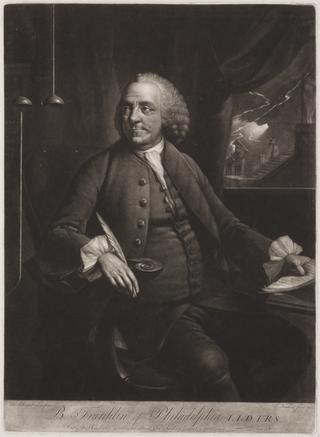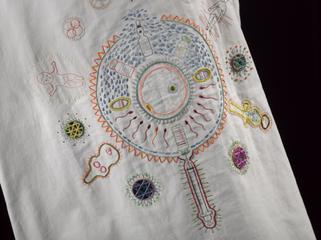
Carte de Visite portrait of Japetus Steenstrup
- PART OF:
- 47 Carte de Visite photographs
- Made:
- 1862-1869 in Birmingham





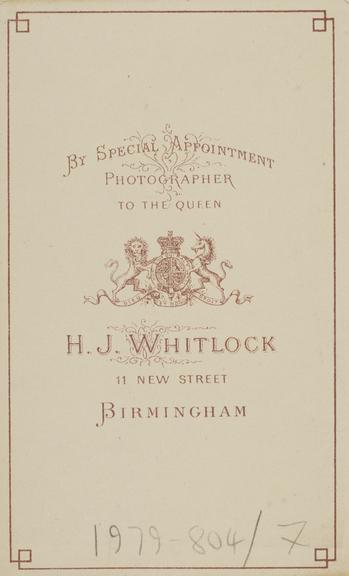


Carte de Visite photograph of Japetus Steenstrup by H. J. Whitlock of Birmingham (1862-69). Steenstrupe is shown seated half-length on a padded chair, wearing shirt, waistcoat, jacket and glasses, with hands clasped in his lap.
Steenstrup was a Danish zoologist, biologist, and professor famous for naming and describing the giant squid 'Architeuthis dux' ('ruling squid') in 1857, previously famous in legend as the kraken: a terrifying sea monster that could pluck fishermen out of their boats.
The Carte de visite - a photograph mounted on a piece of card the size of a formal visiting card - was patented by the French photographer Andre Adolphe Eugene Disdéri (1819–89) in 1854. The idea was introduced to England in 1857, and in May 1860, J.E. Mayall took carte portraits of Queen Victoria, Prince Albert and their children, leading the carte to soar in popularity.
Collecting portraits of family, friends and celebrities became popular, mounting these in photograph albums. Celebrity cartes were sold at stationer’s shops in the same way that picture postcards are today. The craze for collecting celebrity cartes de visite in albums reached its peak during the 1860s, but the format remained popular until the beginning of the 20th century, and cartes can still be found in large numbers, loose or in family albums.
This is one of a group of 47 Carte de Visite photographs, primarily portraits of scientists - the majority practitioners of the Life Sciences - acquired by the museum in 1979. The portraits are mainly by British studios but a few are from Germany and one from Belgium.
Details
- Category:
- Art
- Object Number:
- 1979-804/7
- Materials:
- paper (fibre product) and ink
- type:
- photograph and portrait
- credit:
- Turner, K.M.

